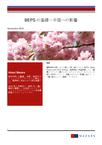近年、経済のグローバル化が進み、多くの企業が国境の垣根を越えて、オペレーションを行うようになりました。多国籍企業の増加と同時に税制の抜け穴を利用した国際的な税制対策も一般的になり、国際税務分野における新たな取り組みであるBEPS(Base Erosion and Profit Shifting:税源浸食と利益移転)という言葉がメディアを賑(にぎ)わすようになってきました。今回は今話題となっているBEPSについて、中国におけるその影響も含めて、その導入部分として、解説していきます。
1. BEPSとは
2. BEPSの経緯
3. BEPS行動計画4. 中国におけるBEPS対応
4. 中国におけるBEPS対応
About the author
Shogo SATO | Senior Consultant
Qualifications
- Doshisha University, Bachelor
- Beijing Language and Culture University, Chinese language intensive course
SATO started his career at Mizuho Corporate Bank Ltd (Currently Mizuho Bank Ltd). He delivered a wide variety of banking services for public companies, including of corporate finance at corporate banking division. After that, he was engaged in exposures control practice for foreign financial institutions in Asia. After joining Mazars in Jan 2015, he is responsible for delivering tax and financial advisory services to Japanese companies in China as well as the coordination of cross-border M&A centering on Asia.


